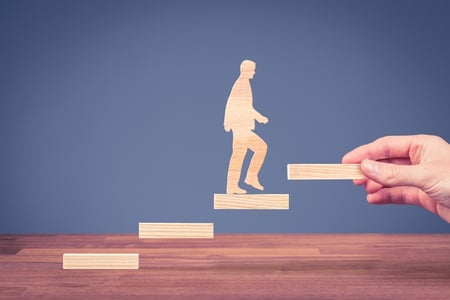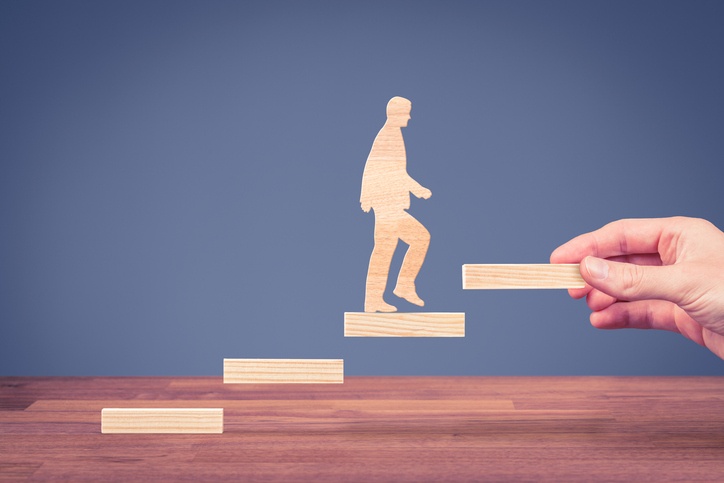 by Ken Lopez
by Ken Lopez
Founder/CEO
A2L Consulting
Our clients at A2L tend to be the best of the best trial lawyers. It's a privilege to work with the people that we work with. We learn from them, and they learn from us.
It's that last point, though, that can be a sticking point for trial lawyers who are not used to working with litigation consultants.
They wonder . . .
- Why would I need a litigation consultant or coach if I'm already recognized as one of the best at what I do?
- I know I'm one of the best, and I know this litigation consultant is not better than me, so how are they helpful?
- What if I'm perceived to not be as good as my reputation?
All these responses are very normal reactions to someone accepting coaching for the first time or for the first time in a long time. However, they can all be answered with some combination of the following three answers:
- Most of us have had a coach at some time in our lives. If we were very young, they were probably better than us, and they could show us the right things to do to be better at our craft. If we were adolescent or older, our coaches were often not better than us at the thing being coached. Instead, in adulthood, our coaches are usually not there to model the behavior that makes us better. Rather, they are there to help us be our best. Whether it is observing our golf swing and using cameras and computers to compare it with the ideal golf swing; whether it is telling us whether our piano concerto is being played with emotion and passion as opposed to being too mechanical; or whether it is suggesting a rearrangement of the order of an opening statement; the idea is the same. The goal of a great coach is to bring out the best. See, The Real Value of Jury Consulting, Litigation Graphics & Trial Tech.
- At the risk of quoting a litigator colleague too often in my writings, I will note again that they call it the practice of law but nobody is practicing! It’s only a minority of trial lawyers who routinely practice their trial presentations. I think they are doing themselves a tremendous disservice when they don't practice, and I don't believe the clients should tolerate this. A litigation consultant will make sure they practice and will help them practice. See, 25 Things In-House Counsel Should Insist Outside Litigation Counsel Do
- Even Michael Jordan, Tiger Woods, Katy Perry, and Joel Osteen have had coaches. All of these people were better than their coaches. You may be the best at what you do, but ask yourself, why do people who are the best at what they do still use coaches? To make it really hit home, ask yourself why many of your colleagues from other firms use litigation consultants to improve their results at trial? The answers will help you become a better trial lawyer. See, Accepting Litigation Consulting is the New Hurdle for Litigators
Other FREE A2L Consulting resources about practicing for trial, using litigation consultants, the value of a litigation coach, and how to best practice your trial presentation:
- 7 Things In-House Misses When Litigation Consultants are Underutilized
- Lawyers: It’s Time to Make Time for Trial Preparation
- 12 Reasons Using Trial Consultants (Like Us) Is Possibly Not Fair
- The Magic of a 30:1 Presentation Preparation Ratio
- [Free Download] Trial Lawyer’s Guide to Jury Consulting & Mock Trials
- The Very Best Use of Coaches in Trial Preparation
- 21 Reasons a Litigator Is Your Best Litigation Graphics Consultant
- Practice, Say Jury Consultants, is Why Movie Lawyers Perform So Well
- 6 Ways to Use a Mock Trial to Develop Your Opening Statement
- With So Few Trials, Where Do You Find Trial Experience Now?
- Litigator & Litigation Consultant Value Added: A "Simple" Final Product
- Litigation Consultant: Embrace a Two-Track Strategy & Win the War
- 3 Ways to Force Yourself to Practice Your Trial Presentation
- 6 Good Reasons to Conduct a Mock Trial
- 25 Things In-House Counsel Should Insist Outside Litigation Counsel Do
- The 5 Very Best Reasons to Conduct a Mock Trial
- FREE E-BOOK: Making Great Speeches and Connecting with Your Audience
- Accepting Litigation Consulting is the New Hurdle for Litigators
- 16 Trial Presentation Tips You Can Learn from Hollywood
- Practice is a Crucial Piece of the Storytelling Puzzle
- Mock trial services lead by a jury consultant with 400+ mock trials
- 50 Characteristics of Top Trial Teams
- The 14 Most Preventable Trial Preparation Mistakes
- 7 Habits of Great Trial Teams
- 10 Criteria that Define Great Trial Teams
- Free Guidebook: Why Should I Work with A2L Consulting?






Leave a Comment